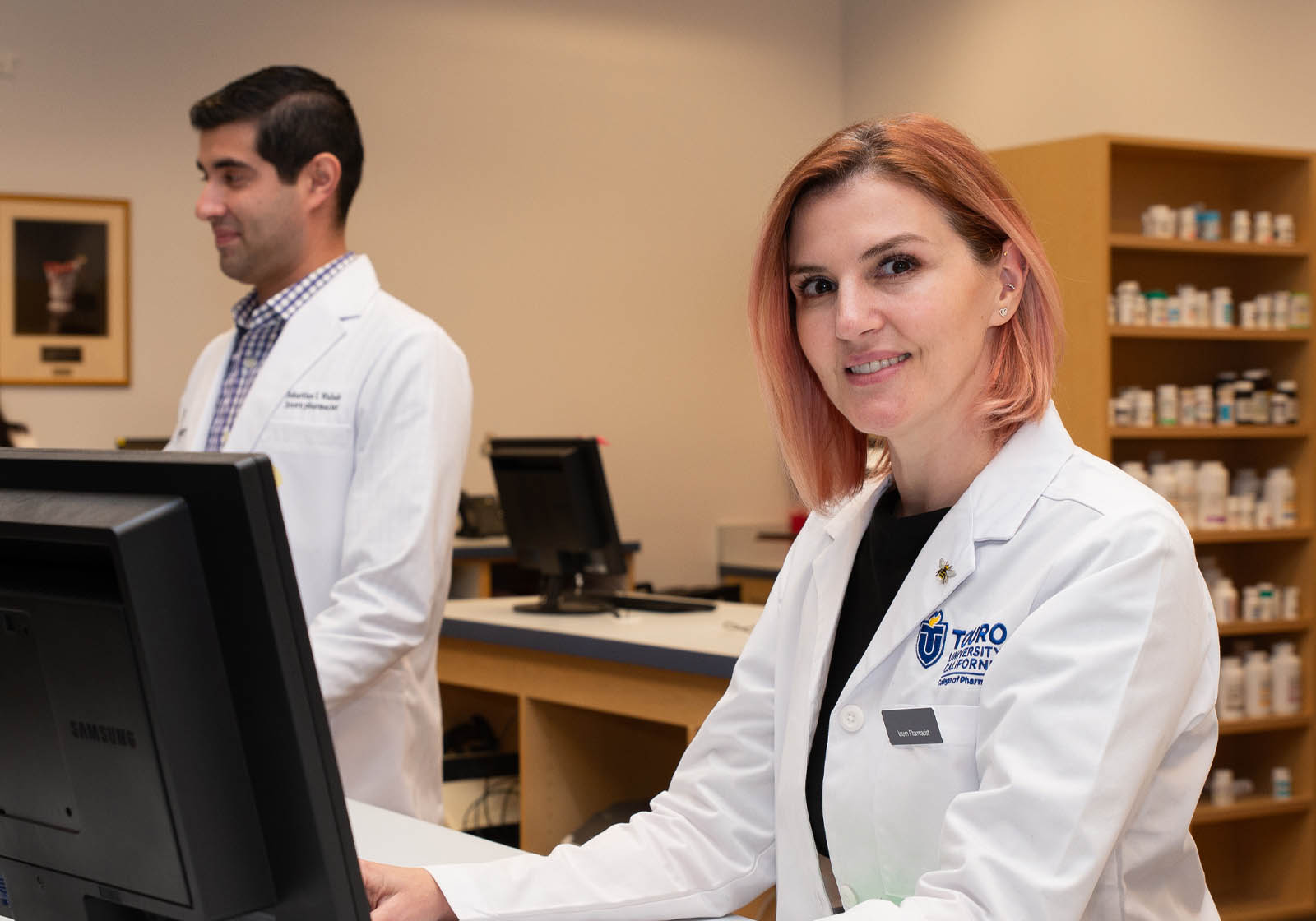
Admissions
We're delighted you're considering applying to Touro's College of Pharmacy. Please review our technical standards for admission into the program.
Technical Standards
The awarding of the PharmD degree signifies that the holder is prepared for entry into the practice of pharmacy. It follows that graduates must have the knowledge and skills to practice and function in a wide variety of settings and situations. Candidates for the PharmD degree must be able to perform specific essential functions that the faculty deem requisite for the practice of pharmacy.
These functions fall into several broad categories, including: observation; communication; motor; conceptual, integrative and quantitative; and behavioral and social. Candidates must also have the physical and emotional stamina to function in a competent manner in a setting that may involve heavy workloads and stressful situations. TUCOP has determined that those individuals who are currently impaired by alcohol or substance abuse are not appropriate as candidates or students in the College of Pharmacy.
- Observation: Candidates and students must be able to observe demonstrations and experiments in the basic and pharmaceutical sciences, medical illustrations and models, and computer screens and written and/or printed materials. They must be able to directly and accurately see a patient’s physical condition, to obtain a history and perform appropriate physical assessments, and to correctly integrate the information derived from these observations to develop an accurate treatment plan. They must be able to prepare medications for dispensing to patients and observe the activities of technical staff operating under their supervision in accordance with State law. These skills require the functional use of vision and of somatic sensation. They must have the visual acuity to be able to read prescriptions.
- Communication: Candidates and students must be able to communicate with, understand, and observe patients in a clinical setting. They must be able to record information accurately and clearly, communicate fluently in and understand the English language, and to communicate effectively and sensitively with patients. Candidates must also be able to communicate effectively with other members of the healthcare team in oral and written form, and in patient care settings in which decisions based upon those communications may be made rapidly. They must have sufficient auditory function to hear verbal or telephonic orders and be able to reduce those orders to writing contemporaneously. They must be able to communicate effectively with and supervise ancillary support staff.
- Motor: Candidates and students must possess the motor function sufficient to accurately compound and prepare prescription products for dispensing to patients. They must possess the motor function sufficient to perform basic laboratory tests such as glucose monitoring or finger stick for laboratory testing needed for therapeutic monitoring. They must possess motor function sufficient to be able to administer intramuscular injections. They must possessufficient manual dexterity to perform aseptic manipulations required for sterile compounding. They must possess motor function sufficient to perform levigation and triturtation for extemporaneous compounding. They must be able to use computer-based information systems. They must be able to bend at the knees, bend at the waist, squat, kneel, stand and sit at various times of the day. They must be able to lift a 25 lb weight from the floor and transport that weight a distance of 10 yards across a flat surface.
- Interpretative, Conceptual and Quantitative: Candidates and students must have effective and efficient learning techniques and habits that allow mastery of the pharmacy curriculum. They must be able to learn through a variety of modalities including, but not limited to, classroom instruction, small group activities, individual study, preparation and presentation of reports, and use of computer technology. They must be able to memorize measure, calculate reason, analyze, and synthesize. They must also be able to comprehend spatial relationships and three-dimensional models.
- Behavioral and Social Attributes: Candidates and students must understand the legal and ethical aspects of the practice of pharmacy, and function within the guidelines established by the law and by the ethical standards of the pharmacy profession. They must be able to relate to patients and their families, colleagues, and other members of the healthcare team with courtesy, maturity, empathy, and respect for the dignity of individuals. This requires that they place the welfare of their patients foremost, and demonstrate honesty, integrity, dedication, compassion, and nondiscrimination in the care of their patients. They must at all times demonstrate the emotional stability to be able to exercise good judgment, and carry out prompt completion of all of the responsibilities attendant to the care of their patients in a sensitive and effective manner. This sensitivity includes self-examination of personal attitudes, perceptions, and stereotypes in order to avoid potential negative impacts on relationships and patient care. Candidates must be able to adapt to changing environments, display flexibility and professional responsibility to their patients, and to learn to function in an environment of uncertainty, in which changes may occur rapidly and without warning. All of these personal qualities will be assessed during the admissions and educational process.
